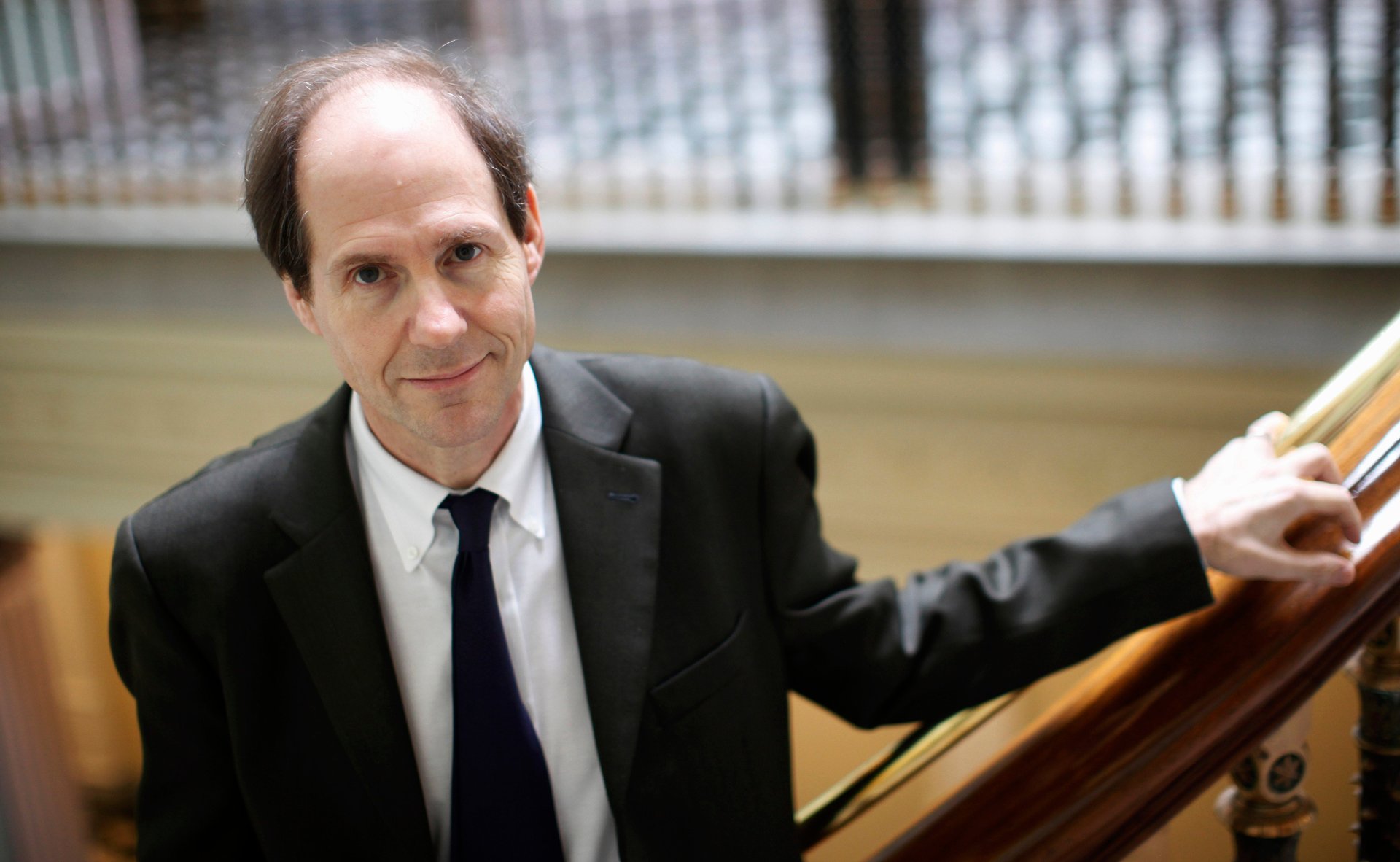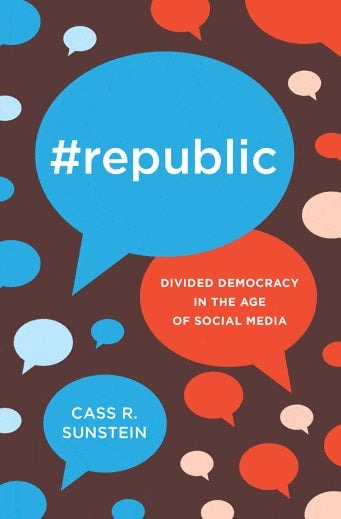Social media’s effect on democracy is “Alexander Hamilton’s nightmare”
Cass Sunstein wants you to get out of your bubble. In fact, the Harvard Law School professor says that democracy depends on it.


Cass Sunstein wants you to get out of your bubble. In fact, the Harvard Law School professor says that democracy depends on it.
“In a well-functioning democracy, people do not live in echo chamber or information cocoons,” Sunstein writes at the outset of his new book, #Republic: Divided Democracy in the Age of Social Media.
Sunstein is a highly influential public intellectual. He is far and away the most cited legal scholar in the US, as well as a bestselling author. He is perhaps best known for coauthoring Nudge with economist Richard Thaler, which argued for using the insights of behavior economics to create better policy. From 2009 to 2012, Sunstein attempted to implement his policy ideas as the head of the US Office of Information and Regulatory Affairs. He was appointed by his friend Barack Obama, who happened to be president at the time.

Sunstein was partially inspired to write #Republic because of his love for the journalist Jane Jacobs’ seminal book on urban development, The Death and Life of Great American Cities. Jacobs’ book is a celebration of the ways serendipity and spontaneity in a city benefits civil society. Social media lacks the characteristics that make cities great, Sunstein says.
A Twitter feed full of people who think the same things, “might seem liberating because all that clutter is gone, but you’re putting a jail sentence on yourself,” he says.
He spoke with Quartz just prior to the release of his book this week. The conversation has been edited and condensed.
Quartz: Throughout the book you refer to the concept of the “dailyme.” What is this?
Sunstein: The professor Nicholas Negroponte created the idea of the “dailyme” in the 1990s with the anticipation that some day people would be able to create a communication universe that reflects only their interests and concerns. Recently, Facebook has gotten very close to creating something like this.
Even if this personalization is fun and convenient, it’s a big problem for society as a whole. We could call it [US founding father] Alexander Hamilton’s nightmare, because it really is the exact opposite information environment of what he hoped the American public would have access to.
Why is it such a nightmare for democracy?
The great contribution of the American founding generation to political thought was to say that the old idea of a republic, which is that it had to be homogenous and unified, had things exactly backwards. What Hamilton very clearly said in the Federalist Papers was that the disagreements between parties promotes deliberation and circumspection.
Today, I increasingly find that kind of dialogue is becoming more difficult. If you have people thinking all Republicans are fascists, then their ability to interact productively with Republicans will be extremely limited. On the left, and I would single out Senator [Bernie] Sanders here, there are those who treat people who disagree with them politically as if they are enemy dupes, rather than people who have different ideas. On the right of course you could say the same thing. If you think those sorts of things, then your ability to work together on infrastructure legislation or tax reform is going to be sharply limited.
In the book, you highlight the importance of the public forum doctrine. What is it, and how does it relate to social media?
The public forum doctrine is a candidate for the most amazing feature of America’s free speech tradition, and it’s not widely appreciated.

The free speech idea is typically, and rightly, thought to be about government censorship. But the public forum doctrine states that not only is the government forbidden from censoring things it doesn’t like, but it also has to leave the streets and parks open for expressive activity, even if that costs taxpayers money. The public forum doctrine allows people access to people they have a beef with—for example, the police, the people who provide drivers licenses, or with the government generally.
Ordinary people who use those places, they are gonna see some of that activity. They will come upon these protests on their way to work, or strolling with their kids. The doctrine, at least when it’s working well, is a central feature of a free society.
Today, there is a greatly diminished role for streets and parks as public places. Social media like Facebook may matter a lot more than the streets as places where expressive activity occurs. The challenge is that the features set out by the public forum doctrine are probably not going happen on your Facebook page if only things you want to see are presented to you.
You suggest that one way democracy might thrive in the internet era is if people had access to an “opposing viewpoint button” option on social media.
The basic idea is that Facebook or some other social media provider could, and I think they should, provide you with an opportunity to see ideas that are different from those that you embrace. In a modest version of it, Facebook would ask you, “Do you want to see opposing viewpoints?” You could say no, but I predict a lot of people would click it.
Either they would want to see what those crazy people who disagree with them think, or they would be curious about what they might learn from the opposing point of view. My prediction is that over time, the first group, those that want to see what the crazy people think, would slide into the second group, and become curious.
If you see things that are different from what you think, presented sincerely by people who hold those beliefs, typically you learn that they have a view that has some rationality to it. It becomes interesting rather than dismissible.
That sounds good in theory, but is anybody doing it in practice?
There are people I know of at universities who are exploring this very actively. You are going to hear about some of them in the relatively near future, but they are not ready for primetime.
But some are public. There is a chrome extension called PolitEcho that can tell you some stuff about political biases you might have. FlipFeed, which comes from MIT, allows you to replace your own Twitter feed with that of an anonymous user who doesn’t think the same way that you do politically. The iPhone app Read Across the Aisle does something similar. Escape Your Bubble, a plugin that feeds your Facebook feed with opposing political views, is also quite cool.
So what do you do to get out of your bubble?
When I worked for president Obama, I read the Wall Street Journal, which hasn’t been that excited about the Democratic Party. I also try to read columnists who are to my left and to my right. I’ve found that at least once every month I change my view about something as a result.
And over the last year, I spent a lot of time reading material that suggests my own concerns about echo chambers are ill placed and misconceived. I have read a lot of stuff that suggests some piece of my book is wrong.